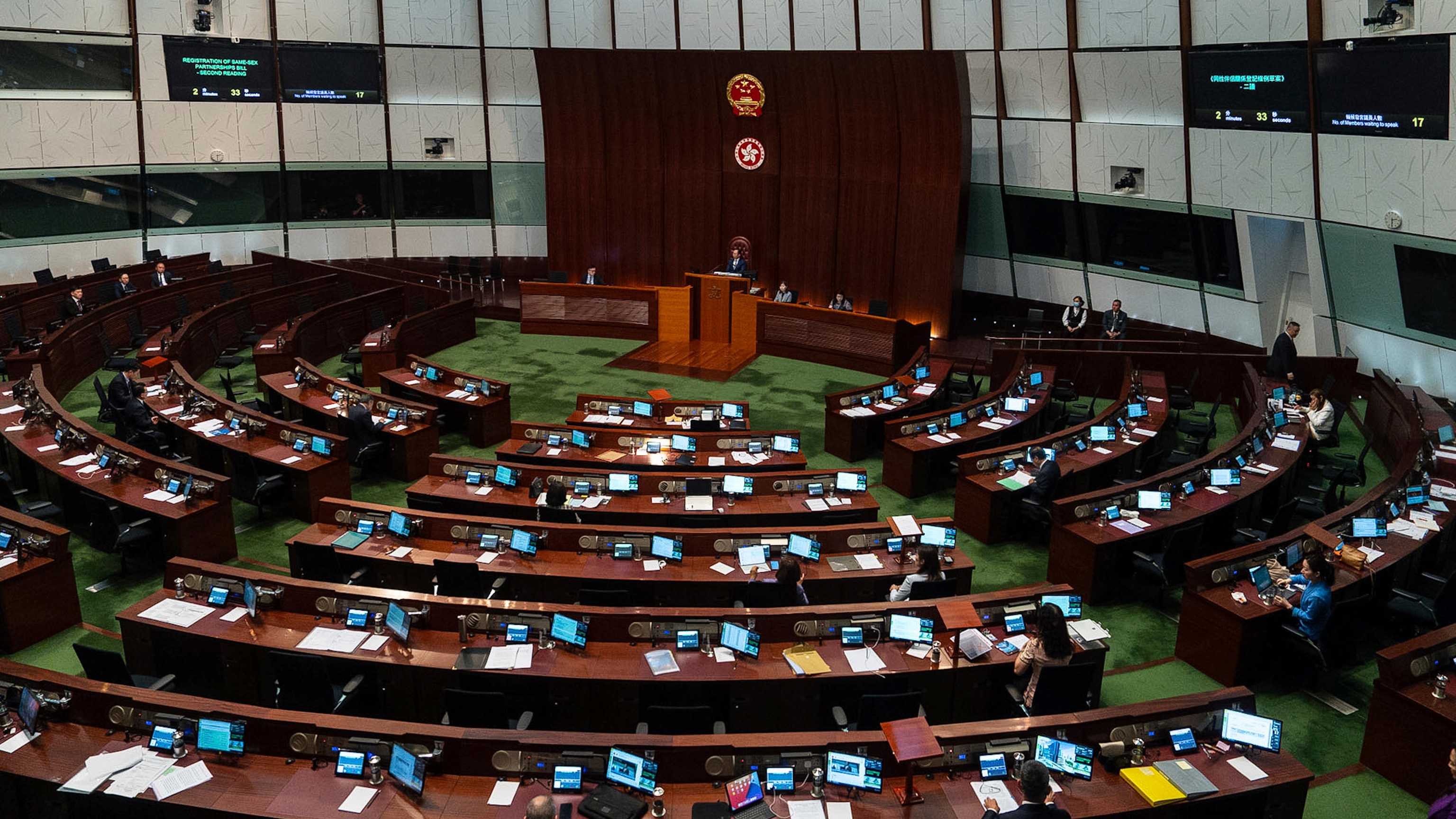Hong Kong Lawmakers Reject Bill Granting Rights to Same-Sex Couples
Hong Kong lawmakers rejected a bill to grant limited rights and recognize same-sex partnerships, with 71 out of 89 Legislative Council members voting against it, despite growing public support.
Subscribe to unlock this story
We really don't like cutting you off, but you've reached your monthly limit. At just $5/month, subscriptions are how we keep this project going. Start your free 7-day trial today!
Get StartedHave an account? Sign in
Overview
- Hong Kong lawmakers rejected a bill aimed at granting limited rights and recognizing same-sex partnerships, preventing the establishment of registration systems for same-sex couples.
- The Legislative Council saw 71 of its 89 members vote against the proposed legislation, effectively blocking the expansion of rights and benefits for same-sex couples.
- Fierce opposition from various lawmakers, pro-Beijing legislators, and religious groups contributed to the bill's rejection, citing concerns over the erosion of traditional family values.
- The rejected bill would have introduced a registration system, offering some legal recognition and benefits to same-sex couples, which are currently largely unavailable in Hong Kong.
- This legislative setback occurred despite recent surveys indicating increasing public support within Hong Kong for same-sex marriage and the broader LGBTQ community.
Report issue

Read both sides in 5 minutes each day
Analysis
Center-leaning sources frame the rejection of the same-sex couples' rights bill as a setback for Hong Kong's LGBTQ+ movement. They emphasize the legal mandate for an alternative framework and highlight criticism from human rights groups. The coverage contrasts the legislature's decision with rising public support and Beijing's influence, implicitly questioning the decision's alignment with societal trends.
Articles (3)
Center (3)
FAQ
The bill would have allowed same-sex couples who married or entered civil unions overseas to register their partnerships locally, granting them limited rights such as making medical decisions for their partners and arranging after-death matters, but it did not cover parental or adoption rights.
Opposition came from lawmakers, pro-Beijing legislators, and religious groups who argued the bill would undermine traditional family values and expressed concerns it lacked social consensus, with over 8,000 submissions opposing it; some also argued legislative solutions were not necessary and that the vote would not cause a constitutional crisis.
A landmark 2023 ruling by Hong Kong's Court of Final Appeal mandated the government to legally recognize same-sex couples by October 27, 2025, setting a two-year deadline for establishing a recognition framework, which the bill aimed to fulfill.
Recent surveys indicate growing public support, with about 60 percent of Hong Kong residents supporting same-sex marriage, up from 38 percent in 2013.
Currently, Hong Kong does not allow same-sex marriage or registered civil partnerships, but courts have granted limited rights to same-sex couples married or partnered overseas, such as access to spousal benefits, taxation considerations, public housing eligibility, and inheritance rights.
History
- This story does not have any previous versions.


